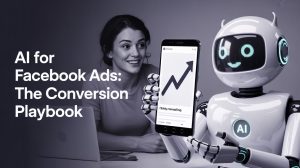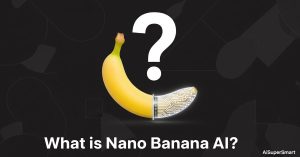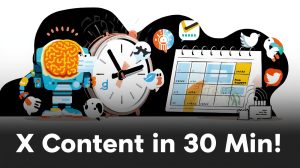In a move that’s sending ripples through the digital marketing world, Google has unveiled its most ambitious AI-powered advertising tool to date. Dubbed “AI Max for Search,” this comprehensive suite of features promises to fundamentally change how businesses connect with potential customers online – and possibly render traditional keyword strategies obsolete.
Announced yesterday, May 6, the new technology represents what many industry insiders are calling Google’s boldest integration of artificial intelligence into its advertising ecosystem yet. The timing couldn’t be more significant as Google Search itself undergoes a dramatic transformation from simple keyword-based queries to a more intuitive, exploratory platform.
“We’re moving beyond simply matching users’ queries to predicting what they might need next,” explained Brian Burdick, Senior Director of Product Management at Google Ads, during the announcement. “This ability to capture richer signals of intent means we can deliver relevant ads in new moments and contexts that didn’t exist before.”
Breaking the Keyword Barrier
For decades, digital advertisers have lived and died by keywords – carefully researching and selecting the exact terms they believed potential customers would use. AI Max for Search appears set to upend this fundamental approach.
The new system leverages Google’s vast data resources and advanced AI to help advertisers connect with users even when they haven’t explicitly searched for related products or services. This intent-based advertising represents a significant philosophical shift from reactive to predictive marketing.
“It’s like Google is saying, ‘Don’t worry about guessing what words people will use anymore – we’ll figure out who needs your product regardless of how they search,'” notes digital marketing consultant Sarah Jensen, who wasn’t involved in the announcement but has been tracking Google’s AI developments closely. “That’s both exciting and slightly terrifying for marketers who’ve built careers on keyword optimization.”
The Multi-Surface Approach
Perhaps most telling about Google’s strategy is how AI Max addresses the increasingly fragmented search landscape. Traditional text searches are now just one way users interact with Google, with visual searches through Google Lens and conversational queries through AI Overviews growing rapidly in popularity.
AI Max promises to deliver contextually relevant ads across all these “surfaces,” automatically adapting content to suit the format and context. For a clothing retailer, this might mean displaying visual-heavy ads when users search with images, or more detailed text when engaging with AI Overviews about fashion trends.
Related Posts

“The days of creating one perfect search ad are over,” Jensen adds. “Brands now need to think about creating flexible advertising assets that can morph depending on where and how users encounter them.”
Early Adopters See Dramatic Results
Google claims the data already shows impressive performance, with advertisers activating AI Max typically seeing 14% more conversions or conversion value at a similar cost-per-acquisition. For campaigns still heavily reliant on exact and phrase keywords, the uplift is even more dramatic at 27%.
Some major brands have already jumped on board. L’Oréal, the global beauty giant, reported a staggering 2X higher conversion rate at 31% lower cost-per-conversion after implementing AI Max.
“AI Max not only allowed us to pioneer the use of AI in Search — it also propelled us into new markets, reaching untapped audiences with lower costs, higher conversions and more relevant ad experiences that significantly boosted engagement,” said Nicolás Moya, CMO of L’Oréal Chile, in a testimonial provided by Google.
Smaller companies are seeing benefits too. Australian utility connection service MyConnect drove 16% more leads at 13% lower cost-per-action, with a noteworthy 30% increase in conversions specifically from net-new queries.
“We were able to drive incremental high-quality leads by unlocking net-new searches and having AI build more relevant content to each user and their query,” explained Bec Oxnam, Head of Marketing at MyConnect.
The Balancing Act: AI Power with Human Control
Recognizing the potential anxiety around handing too much control to algorithms, Google has emphasized the enhanced controls and insights built into AI Max.
The system introduces “locations of interest” targeting at the ad group level, allowing advertisers to reach specific customers based on geographical intent. New brand controls at both campaign and ad group levels let marketers specify exactly which brands they want their ads associated with – or kept away from.
“It’s about finding that sweet spot between AI automation and strategic human oversight,” explains tech analyst Miguel Rodriguez. “Google seems to understand that marketers need to feel they’re still steering the ship, even if the AI is handling more of the navigation.”
A Glimpse of Search’s Future
Industry watchers see AI Max as more than just a new advertising product – it’s a clear signal about how Google envisions search evolving. As search becomes increasingly powered by AI, with features like AI Overviews synthesizing answers rather than just linking to websites, advertising must evolve in parallel.
“This announcement essentially confirms that traditional search as we’ve known it for 25 years is fundamentally changing,” says Rodriguez. “Google is preparing advertisers for a world where users might not even see a traditional search results page anymore.”
The shift also raises interesting questions about data usage and privacy. As targeting becomes more sophisticated and predictive, Google will inevitably face scrutiny about how it’s using personal information to inform these AI-driven advertising decisions.
What Marketers Should Do Now
For businesses heavily invested in search advertising, AI Max represents both an opportunity and a strategic challenge. Marketing teams should consider:
- Evaluating current keyword strategies and preparing for a shift toward more intent-based approaches
- Reviewing creative assets to ensure they can adapt across different search formats and contexts
- Developing a clear framework for balancing AI automation with human strategic input
- Staying informed about the evolving privacy landscape as targeting becomes more sophisticated
Google says AI Max for Search will roll out in beta to advertisers globally starting later this month. The full impact of these changes will likely take months to become clear as businesses implement these new capabilities and measure their effect on performance metrics.
One thing seems certain: the era of painstakingly building exhaustive keyword lists may be drawing to a close, replaced by a new age where artificial intelligence does the heavy lifting of connecting businesses with potential customers.
“The question for marketers isn’t whether to adapt to this new AI-driven approach,” concludes Jensen. “It’s how quickly they can embrace it before competitors do.”




